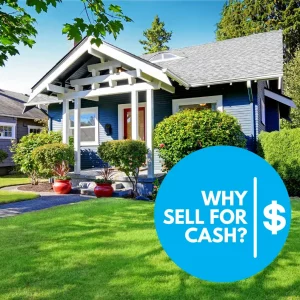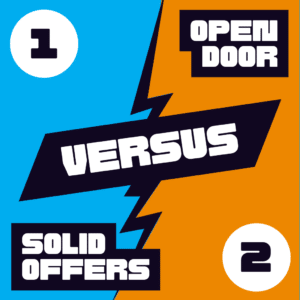This is part two of What’s the Process of Selling a House for Cash.
You got a cash offer! It’s always exciting to have an offer in hand, but you will want to make sure the offer fits your needs. There is no secret formula to figuring out exactly how much your house is worth and how much you should sell it for, but there are some things you can do to make sure it is a fair cash offer.
Evaluating the Cash Offer
- Take a look at the real estate market in your neighborhood. Keep in mind, your neighbor’s house may currently be listed at an attractively high price. It is only worth what someone ends up paying for it. For this reason, focus on the properties that have recently sold. What kind of condition were they in? Did they remodel or fixed up before selling? Were they larger or smaller than your home? Comparing these homes to yours, and adjusting for repairs, can give you a ballpark figure of your house’s value.
- What is your situation and circumstances? Maybe the money is less important to you than just selling the house and being done with it. This often occurs when troubled tenants are in place or unforeseen issues have arisen that require an expedited sale.
- Hire a professional appraisal. Although hiring a professional appraisal company costs money ($300-$750 on average, depending on the size of your property), they can provide an estimate of your house’s value. However, this is only a ballpark figure, which may or may not have an impact on your end sell price. If a professional appraisal is something you want, be sure to find a trustworthy company that will take all the necessary steps to provide you with the most accurate value possible.
For an investor to buy your house, it has to be a good fit (and a fair price) for them as well as for you. This means they must consider the costs and expenses they will incur to purchase the house, fix it up, and then either rent it or sell it.
For your part, consider the expenses you would incur if you were to sell it traditionally. These include repair costs, mortgage payments, utilities, taxes, real estate commission fees, closing costs, etc.
Asking Questions
An offer in hand is great, but that is just the start. There is much more to selling a house than just the price. Asking your buyer’s right questions will help ensure your expectations are met throughout the entire selling process.
- Can the buyer close in the timeframe you want?
- Will the buyer be using a local Title and Closing company to ensure the transaction is handled properly and legally?
- Will there be an earnest money deposit?
- What kind of contract/purchase agreement will they be using?
- Did they ever back out of a deal after the paperwork was signed?
The questions above are a good start, but they are only that. If you are not clear on an issue, ask. A professional house buyer will be able to answer all of your questions without hesitation.
Signing the Contract
If the cash offer sounds fair to you, the next step involves signing the contract/purchase agreement. Purchase agreements come in all lengths and sizes. If you don’t understand a clause, ask. If there is something on the contract you don’t like, bring it up with the buyer. More often than not, changes can be made to the agreement to fit both parties’ needs. If you disagree with terms or clauses, don’t sign it until those issues are resolved. It is always your right to have an attorney review it before you sign it.
Every contract, regardless of length, should include the purchase price, the length of the escrow (the final closing date), the agreed-upon earnest money deposit amount, and the name of the title or escrow company that will be used (if this has been agreed upon). Once the contract meets your approval and both parties sign, then it is almost time to celebrate the sale of your house. First, however, comes the closing process.
The Closing Process
Once the price is agreed upon, and the contract is signed, the process’s remainder mirrors any traditional home sale. The agreed-upon title/escrow company will search the county records to ensure there are no liens or encumbrances on the property and that all parties involved in the transaction are who they say they are.
The only difference you may notice between a traditional home sale and selling to a cash buyer is the time involved. Without a lender in the middle, a cash buyer can close within seven to fourteen days. On the day of closing, you will sign the final documents with the title/escrow company and hand over any keys to the property. Once the documents are all signed by the buyer(s) and seller(s), the title/escrow company will make certain you receive your funds for the property. Most companies will either wire the money directly into your preferred bank account or issue a check that can be either picked up from their office or delivered via a certified carrier.
That’s it! Congratulations. You SOLD your house, and the money is in your pocket.
After the Closing
Take your money and relax in your new home. Or, if the opportunity arises, go on vacation. Selling your property can indeed be a lengthy, complicated, and drawn-out endeavor, but a cash buyer means it doesn’t have to be. Within a week or two of deciding to sell your house, and with the right house buyer, you can have it sold and experience nothing more than a pleasant memory.
Of course, selling to an investor for cash isn’t for everyone. Make sure to ask the right questions and pick the buyer that is the right match for you.






